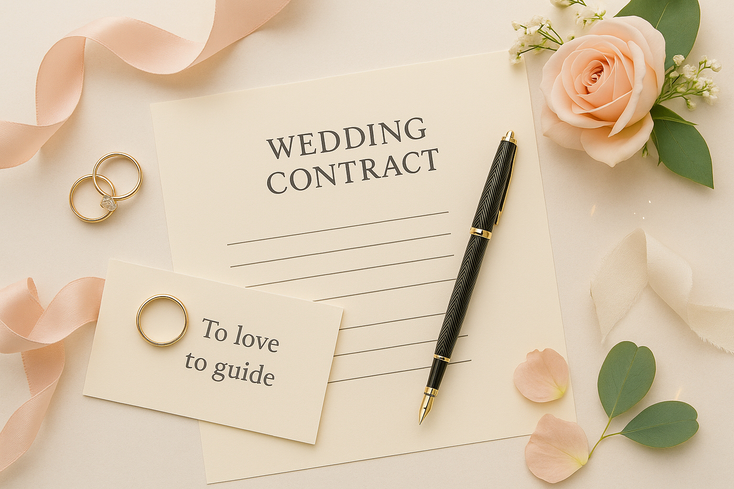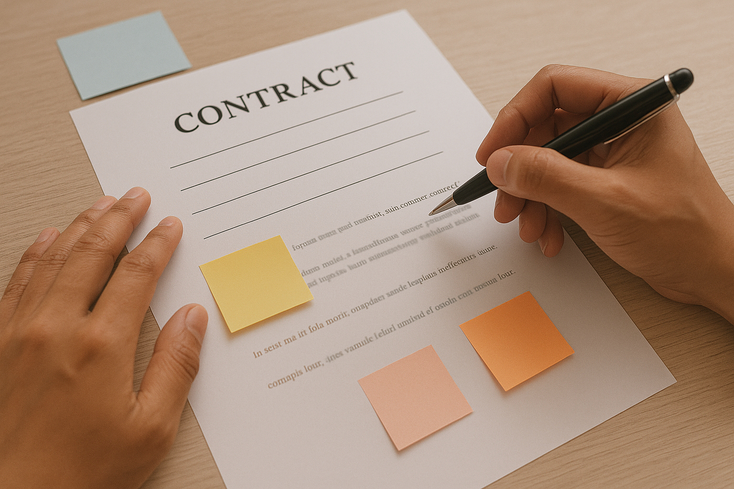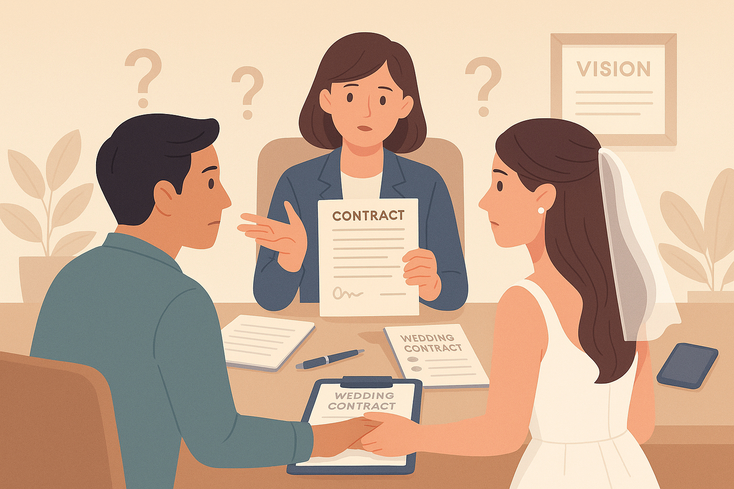
Details You Need to Check Before Signing the Contracts of Your Wedding Suppliers

Hiring a wedding supplier—such as a photographer, makeup artist, florist, or planner—requires careful analysis before signing their contract and paying your deposit. Until both are in place, the supplier won't lock in your wedding date. This contract is your guarantee that what's promised is what you'll receive—down to the very last detail. To protect yourself and ensure your expectations are met, here's a refined checklist of what to thoroughly verify before signing any agreement.
1. Confirm Every Essential Detail
Ensure the contract clearly states:
- Event date and time
- Services to be provided (what exactly is included and at what level)
- Full list of inclusions such as deliverables, setup, breakdown, and personnel
- Full names of everyone involved in the agreement
- Payment terms—total cost, deposit required, balance due, and deadlines
- Contingency plan to cover emergencies or unexpected changes
- Liability clause specifying who assumes responsibility for damages, losses, or accidents
These are the pillars of a solid supplier agreement.

2. Include Provisions for Unresolved Details
Sometimes, not everything is finalized at contract-signing. If that's the case, add a clause explicitly stating which details will be finalized later in writing. Once agreed upon, you can formalize them with an addendum. This ensures clarity and prevents misunderstandings.
3. Clarify How Additions Affect Cost
If you plan to add elements later—such as wedding albums, extra bouquets, or rehearsal coverage—ask whether those will change the total price. If they do, try to confirm those specifics before signing, so you're aware of any additional costs upfront.
4. Understand Rates for Extra Hours
Weddings often run longer than planned. Suppliers—especially photographers and videographers—typically charge extra for extended coverage. Confirm:
- How extra time is billed (by the hour? per team member?)
- If paying for fewer people (e.g., main photographer only) is an option for longer coverage

5. Negotiate Terms That Suit You
A contract should reflect both your needs and those of the supplier. Suppliers will often allow fair modifications. If it's reasonable, don't hesitate to request changes. You deserve a contract that provides balanced protection.
6. Define Usage Rights of Your Photos
Photographers may retain rights to use your wedding images for promotion. Suppliers across categories might also request permission to feature your day in their portfolios or on social media. If you'd prefer privacy, specify clearly in writing that any use requires prior consent.
7. Require a Backup Plan
Always ask: What happens if the supplier is unavailable on your wedding day?
- Does the photographer have a backup?
- Does the venue have a contingency for rain?
- Do florists rent from alternative suppliers?
Write these backup arrangements into the contract to avoid unwelcome surprises later.
8. Set Realistic Delivery Expectations
Timeliness matters—especially for memories like photos or albums. Ask:
- When will you receive the deliverables? Typical turnaround for photos is 3–4 months, possibly longer in peak season.
- What happens if delivery is delayed? Are there refund or discount policies if timelines aren't met?

9. Ask Questions
If any part of the contract is unclear, speak up—no matter how simple it seems. Ambiguity can cause serious issues later. Ensure you 100% understand every clause, condition, and timeline before you sign.
10. Define Terms for Changes
Even with the best planning, dates and times may need to shift. Ask:
- Under what conditions can you reschedule?
- Is there a penalty or fee?
- What constitutes a “change event” versus an unavoidable force majeure?
- How much advance notice is required?
Make sure this policy is clearly stated in the contract.
11. Consult Other Couples
Some of the best contract advice comes from other brides or grooms who've worked with the same supplier. They can share details they added or suggest clauses you may have overlooked. Don't underestimate the power of their insights!
12. Proofread Multiple Times—with Fresh Eyes
Read through the contract multiple times. Then, have someone else—like a friend or your partner—review it too. A new perspective can help catch typos, omissions, or ambiguous terms you might have missed.
Final Tip:
Never feel rushed or pressured into signing. Take your time to thoroughly review and negotiate so your wedding day goes as smoothly as possible—with everything you agreed to in writing.
Find Your Perfect Wedding Supplier Today!
Discover trusted wedding suppliers across the Philippines in our complete directory. Compare services and connect with the ones that fit your dream celebration.
Browse Wedding Suppliers



